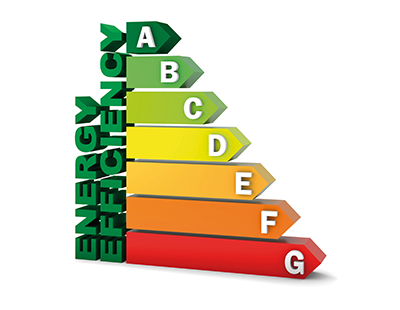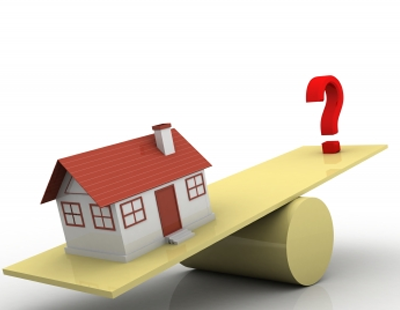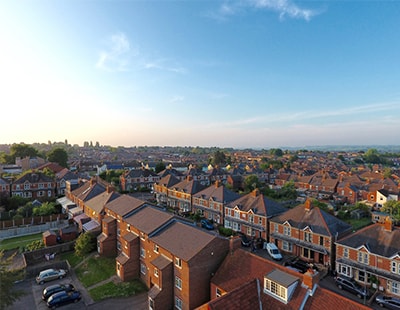
A business analyst is warning that the growing emphasis on energy efficiency of homes could spell trouble for the value of older properties.
The Office for National Statistics, in a new report, says properties in England overall have an average energy efficiency rating of 66, and in Wales it’s 64.
That means both are band D on the Energy Performance Certificate ranking.
However, the government is targeting as many properties to hit band C as possible by 2035 - band C begins at 69.
The ONS report says modern properties built after 2012 score an average of 83, putting them in band B, while those built before 1900 have an average score of only 54 in England and just 51 in Wales - firmly in band E.
Those built from 1983 onwards have an average rating of band C or higher, and those built before fall short of government targets.
Overall, houses are less efficient than flats, with semi-detached properties in England and Wales scoring an average 63; detached properties are 63 (England) and 62 (Wales). Flats and maisonettes are rated an average of 72.
In the light of these figures Sarah Coles, an analyst at consultancy Hargreaves Lansdown, is warning that owners of older properties “have a mountain to climb if they’re going to hit the government’s energy efficient targets.”
She says: “A typical Victorian property is faced with insulating its way from an average band E to an average band C. This could prove too expensive, leaving the owners of these properties out in the cold.
“The government has set an energy efficiency goal of getting as many properties as possible up to band C by 2035. These figures show that for older houses, especially those built before 1900, the cost of these improvements may well be too much for homeowners.
“The government is considering encouraging people to take action by manipulating the mortgage market. Mortgage lenders could be forced to target lending on more efficient homes, and encouraged to provide additional funds so people can make improvements.
“They won’t force anyone to make changes where they are unaffordable. However, if you’re living in a Victorian semi with a rating of band E, you may well struggle to find a mortgage lender offering a competitive deal. When you come to sell, this could mean buyers are thinner on the ground, which is likely to depress the price.
“To make matters worse, the research also showed the energy costs for people living in older homes is significantly higher, so those who are struggling to downsize from a big Victorian property face eye-watering energy bills while they wait for a buyer.”














.png)


.jpg)
.jpg)





%20-%20IMAGE%20Client%20Accounting%20%E2%80%93%20what%20are%20your%20options.jpg)


.png)
.png)
.png)
%20(002).png)






%20(002).jpg)



.jpg)




.png)




Join the conversation
Jump to latest comment and add your reply
You couldn't make this up, you really couldn't. What effect will this have on climate change? About as much as if
everyone in the UK all ran around on push bikes and dumped our fridges, never flew anywhere and wore recycled clothes, the answer would be virtually none as we produce less than 1% of the world's emissions. The Chinese are becoming the richest country on earth whilst we walk face first into economic poverty led by a bunch of wackos who make enough money never to set foot in the country again once they've left office after milking the system and their positions dry at our expense.
Exactly right! if we become net zero, it will make zero difference to the world except make the British poor. Pathetic.
Another organisation throwing around statistics to get themselves some publicity. "A typical Victorian property.....is average Band E"? I specialise in period property and most of the Victorian and Edwardian buildings I deal with have been upgraded before they come onto the market for sale and have higher ratings than this. It's not difficult to achieve a fairly decent rating for older properties, although they'll never be top of the EPC rate. Most people who buy older properties like them for lots of other reasons, not least that most of them are better built than their twenty-first century counterparts and have stood the test of time. Even listed buildings (of which there are less than 400,000 in England or less than 1% of total housing stock) can be upgraded more than many people realise. In Britain we love the character of older houses and it's not surprising that these command HIGHER values generally than modern insulated boxes.
Please login to comment